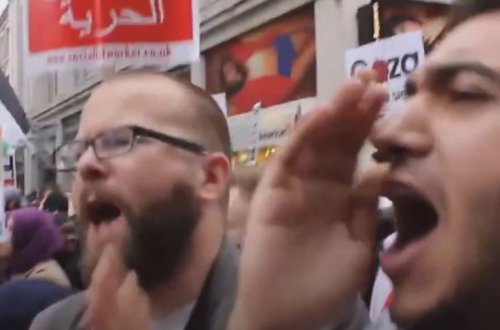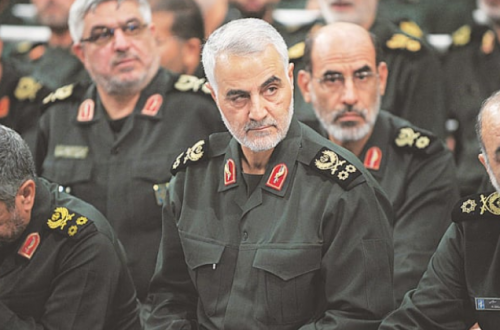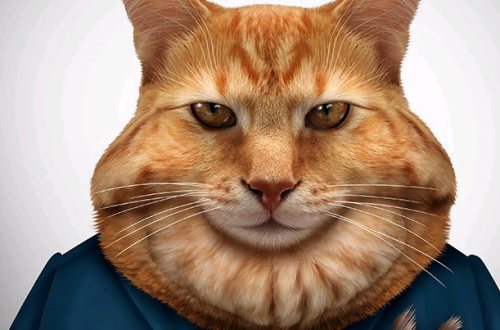I have dutifully complied with Islamicate’s suggestion that I watch this video – a discussion of Islamophobia between Chris Allen and Sameer Mallick.
The conversation opened with some reflections on the word ‘Islamophobia’. Chris Allen explained that the term need not be taken quite literally and also noted that he didn’t think criticism of Islam’s tenets *was* Islamophobic. Then Sameer Mallick complained that terms like racism and antisemitism are not pored over in this way – whereas in fact there is much discussion of both, and a great deal of disagreement as to where the threshold should be set with regards to antisemitism in particular. (6:00) Allen responded that any questions about the term Islamophobia are ‘purely a device with which to undermine and not to talk about the real issues’.
But what are the real issues exactly? Allen seemed to imply that those quibbling about the term ‘Islamophobia’ are indifferent to the existence of anti-Muslim prejudice and violence. But one quite prominent such quibbler is Mohammed Amin, a patron of Tell MAMA. And even more ‘Islamosceptic’ quibblers than Amin don’t (generally) deny the reality of attacks on Muslim buildings and individuals. What they don’t care for, I think, is the implication that criticism of Islam is likely to be bigoted.
Mallick raised a point which might seem to go against Allen’s assertion that criticism of Islam was not Islamophobic – he questioned those who insist that they don’t have a problem with Muslims, only with Islam. In fact I agree that the boundary is a porous one. Ahmed Adeen posted a message criticising Islam – ‘Quran is a virus disease woreste than Ebola’ – and apparently acted on that belief by running over and killing a fifteen year old boy. But – if someone’s main anxiety about Islam is the apostasy taboo – is it really bigoted to decide that one not only hates the stricter interpretation of Islamic teaching on that issue but also those who adhere to such teaching?
I listened with interest to Allen’s answer to Mallick’s next question – were accusations of Islamophobia ever used to shut down debate? Allen briefly acknowledged this might possibly be the case but seemed anxious to brush the claim aside as essentially an anti-Muslim move. (10:00) He went on to argue that the context in which Tom Holland’s film about the origins of Islam was made might have an effect of bigotry even if that wasn’t its intention – even if its content was unexceptionable in fact. I don’t want to completely discount that kind of argument, but it rather went against his earlier assertion that it was perfectly fine to criticise Islam. Now it seems that – because of the current context – it’s actually not fine. I can understand why he argues that Tommy Robinson expressing disagreement with Islam has a particular rhetorical effect – and likely consequences – which differentiate it from remarks made by a vicar at an interfaith event – but a fairly serious documentary on Channel 4 is a rather different proposition. A useful parallel might be that archaeology programme I discussed here.
Sameer Mallick asked a reasonable point about where you draw the line between fair criticism and bigotry but, worryingly, implied that freedom of speech should only protect the first kind of discourse (14.40). (This apparent implication may not have been his precise intention.) I’ve grumbled a bit about Sam Harris myself, but it wouldn’t even occur to me to ask whether he should be allowed to say what he does. Chris Allen offered a pretty liberal response, defending the right to be offended but also to offend. I agree with Mallick that it’s worth looking at the motivation of some who obsess about halal, and Allen’s observation that the overwhelming majority of media representations of Muslim women feature the niqab (when only a tiny minority wear this garment) was interesting. (21:00)
The speakers are right to insist that Muslims should not be treated as though their views are identical. However whereas those they oppose see only the bad side, Allen appears equally determined to ignore any negatives apart from the most obvious sort of violent extremism. With wearisome predictability the Trojan Horse issue was dismissed as a ‘hoax’. I have no great confirmation bias in favour of Andrew Gilligan, but the evidence ended up being pretty compelling.
One focus of the discussion was Allen’s recent decision to leave the APWG on anti-Muslim prejudice. The curate in the Punch cartoon did think that parts of his egg were excellent, and I fully endorsed Allen’s longstanding support for a CST-style organisation to monitor and measure this problem (42:20), and, like him, was sorry that the government funding for Tell MAMA was not continued. However Mallick’s implication that Hollobone’s bill against the niqab was a government initiative was misleading (46), as were some of Allen’s criticisms of the government’s engagement with Muslims. He accused it of a ‘divide and rule’ policy, harking back to colonialism, because it works with some Muslim groups but not others. Does that mean that the government has to be completely indiscriminate, work with groups such as Hizb ut Tahrir perhaps, in order to avoid that charge?
I completely take Chris Allen’s’ point that the onus should not be placed on victims of hate crime to solve their problems – he explained that one reason he left the working group was because it appeared to expect solutions to come from within the Muslim community. But one definition of Islamophobia holds that an important symptom of the problem is a tendency to treat Islam as a monolithic bloc. When more extreme voices insist so loudly that their own view is ‘normative’ it isn’t surprising that Muslims with a more liberal view of Islam should wish to counter such voices. Chris Allen acknowledged in his opening remarks that criticism of Islam’s tenets wasn’t bigoted, but there is absolutely no mention in the discussion of any of the issues (apart from violent extremism) which actually drive many to turn against Islam completely.
He invoked the straw man of a ‘phobe who calls a Muslim an extremist if he prays five times a day, goes to the mosque and eats halal food. Although obviously some critics of Islam are essentially racists, others have more reasoned objections and many of these acknowledge that not all Muslims subscribe to the teachings which worry them. Based on Allen’s strong criticisms of the ‘poppy hijab’ I wonder whether he feels that those Muslims who assert that severe punishments for apostasy and homosexuality certainly have no place in their ideal state are also simply pandering to ‘Islamophobes’.


